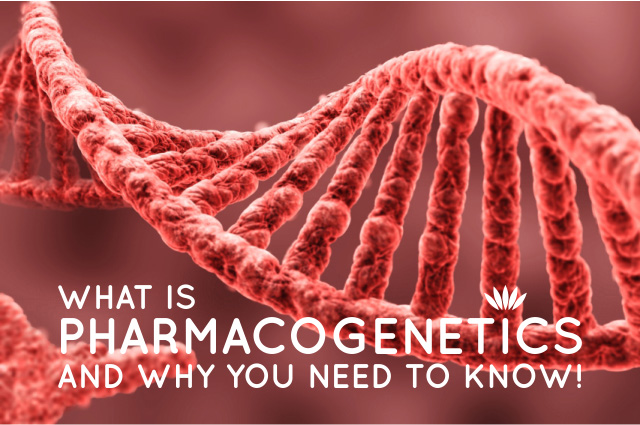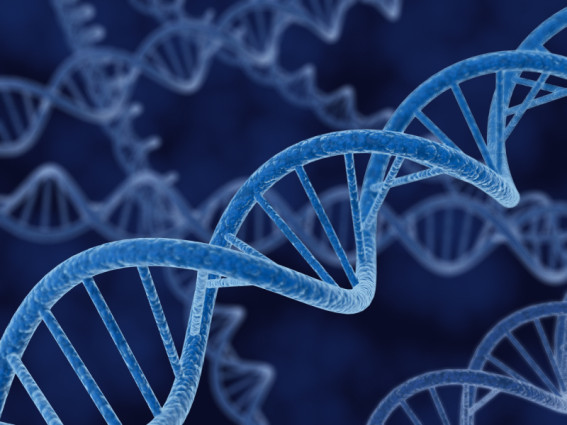What is Pharmacogenetics and Why You Need to Know!

Pharmacogenetics is the study of how genes affect a person’s response to drugs. This relatively new field allows us to combine pharmacology and genomics to develop effective and safe medication dosages which are specific to an individual’s DNA makeup. Wow!
This was incredibly exciting news to me. My grandmother died from a fatal dose of a high blood pressure medication. Her premature death at age 88 could have been completely prevented had she had testing that showed she would react strongly to a new medication her doctor prescribed when her old medication no longer worked. She was given too large a dose to start and her blood pressure declined to the point where she was hospitalized and subsequently passed away.
It was heartbreaking for our family. It was senseless and preventable. I hope this article gives you the power and knowledge to find out the drugs you or your loved ones can tolerate….or not.
The Promise of Epigenetics
When the human genetic code was cracked about 10 years ago, it brought with it the expectation of immediate application to human disease. Pronouncements that there would soon be a cure for cancer and heart diseases, now that we knew the genes causing them were everywhere.
Integrative doctors advised a cautionary approach to the expectation that one gene can cause disease. They reminded their patients that any given disease is not caused by one gene. That there is no such thing as a “cancer gene” or a “heart disease gene.” That was not explained to us by the researchers who cracked the genetic code.
Over the last 10 years, it has come to public knowledge that genes do not necessarily have to express themselves. Integrative doctors have brought to their patients’ attention that genes are turned on or off by our environment. Our environment includes the food we eat, the nutritional supplements we take, the thoughts we have, the exercise we do and the heavy metals and chemicals to which we are exposed daily.
The science studying how genes are impacted by outside environmental influences is called Epigenetics. Epi means “above the gene”, and reflects our recognition that many factors affect the expression of our genes.
Changing the Future of Health Care
Several new genetic tests are available that have immediate clinical application to daily medical care. One of the most powerful of these applications is in the field of pharmacogenetics.
Pharmacogenetics is the study of how genes affect a person’s response to drugs. This relatively new field allows us to combine pharmacology and genomics to develop effective and safe medication dosages which are specific to an individual’s DNA makeup.
This means minimizing side effects from drugs! It’s now possible to reduce the side effects of drugs given that a drug or dosage does not work for a particular individual. At present there are over 770,000 injuries or deaths due to drug reactions per year in the United States. Pharmacogentics gives us the promise of significantly lowering this number.
Pharmacogenetics is based on the understanding that all drugs are taken through several biochemical pathways to break them down after they are administered. The body needs to eliminate these drugs and does it by breaking them down through biochemical pathways. These pathways are explicitly outlined in the PDR for each and every pharmaceutical drug that is made. In fact, it is by law that pharmaceutical companies must pronounce the biochemical pathways through which their new drugs are broken down by our body.
 These biochemical pathways to breakdown drugs are created by our genes. Genes direct the making of the proteins that make the enzymes that break down chemicals and toxins in our body. But some of us have “mutations”, called Polymorphisms (SNP’s – single nucleotide polymorphisms), which either do not allow us to break down the drug or which break down the drug too fast, so it becomes less effective.
These biochemical pathways to breakdown drugs are created by our genes. Genes direct the making of the proteins that make the enzymes that break down chemicals and toxins in our body. But some of us have “mutations”, called Polymorphisms (SNP’s – single nucleotide polymorphisms), which either do not allow us to break down the drug or which break down the drug too fast, so it becomes less effective.
For people that cannot biochemically break down the drugs in a normal fashion the levels in their blood get very high and that contributes to negative side effects, allergic reactions and even death. This can now be prevented for the most part.
Get Tested
We now have companies that can analyze your DNA and see which of your biochemical pathways may be impaired, because you have a genetic polymorphism. They then cross-reference this with all the drugs that require that pathway to break them down.
The laboratories give you a chart that show you which drugs your body is programmed to be able to break down in the normal fashion and the ones you will not be able to break down.
The companies do this for all categories of drugs including high blood pressure drugs, gastrointestinal drugs, urological drugs and even psychotropics and anti-anxiety drugs.
The Possibilities
It’s probably been your experience that one of your friends or your family members has gotten a drug that didn’t agree with them or gave them significant side effects. One of the reasons for these problems is that the person does not have the genes that create the biochemical pathways to break down the medication.
This has applications in all fields of medicine. For example a client of mine relayed a story that she was asking for more and more codeine from her doctor to relieve their pain. He refused. Doctors are taught in medical school that this is a sign of a malingering patient seeking narcotics.
After doing the pharmacogenic test, it turned out that my client was a fast metabolizer for codeine and she would break the codeine down within minutes of swallowing it and therefore would not be able to create the intermediate molecule that gives the pain relief. With this information, the doctor switched the patient to a different narcotic that the test showed she could metabolize and she finally got pain relief.
Imagine you have a friend who’s depressed and they need to go on a psychotropic drug. Wouldn’t it be nice to know if they have the pathways to break down Prozac or Wellbutrin or Lexapro? This is the power of pharmacogenetics.
One of the nice things about this test is that it is a once-in-a-lifetime test. You don’t need to repeat it because it’s showing which drugs your genes can and cannot break down and that is based on your DNA.
Another valuable part of getting this test done is that the last page has a summary of all your genetic polymorphisms, i.e. which pathways work well genetically and which pathways don’t. If you are stuck in an emergency room, you can give this to the emergency doctor who could cross-reference it with drugs that would be appropriate for you in the ER.
To me, this is a very exciting development in medicine. It is the first practical application of our cracking the human genome code that we have available for day-to-day use with patients.
The additional good thing is that insurance companies who pay for the drugs are starting to recognize these tests (see video below). They will often pay for the test, because they realize that if they can prevent you from having side effects that require hospitalization, they will save money. Of course, you must check with your individual insurance company.
After much research, the best lab for the pharmacogenetic testing is Asperio laboratories. The high quality and reliability of their testing and easy to understand format of the results make this my choice.
I am so delighted to spread the word about this new technology. Please bring this to the attention of your own physician so you can enjoy the benefit of Pharmacogenetic testing.
Here are links where you can research some of the labs that do this test.
Learn More
Below are several videos which I know you will find interesting.
The first video is from Asperio labs about the basics of pharmacogenetic testing:
Here is a video from an insurance company explaining why they are excited about pharmacogenetic testing:
Here is a video with the Medical Director of Asperio where he answers questions and explains the testing:
in Articles









